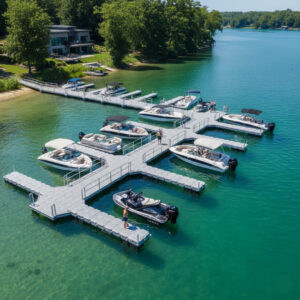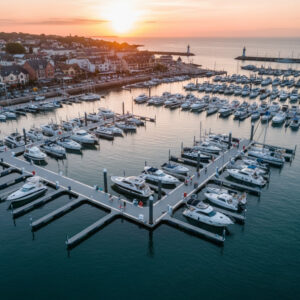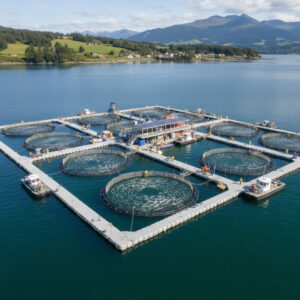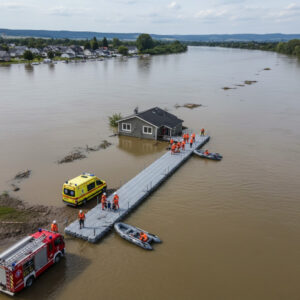What Is a Floating Dock System? Everything You Need to Know
A floating dock system is an innovative and practical solution for anyone who needs a reliable and adaptable platform on the water. Whether it’s for private use, a commercial marina, or an industrial waterfront, floating docks provide unmatched versatility and durability. These systems are designed to perform in a variety of environments from calm lakes to busy coastal marinas offering a stable, long-lasting, and low-maintenance docking solution.
Understanding the Floating Dock System
A floating dock system consists of interlocking platforms that stay buoyant on the water using modular floats or pontoons. Unlike fixed docks, which are anchored permanently to the seabed, floating docks rise and fall with changing water levels, maintaining a consistent height relative to boats or jet skis.
Most modern floating dock systems are built using high-density polyethylene (HDPE) for the main body, a material known for its exceptional UV resistance, corrosion protection, and impact strength. These features make it suitable for both saltwater and freshwater environments, ensuring long-term stability and safety.
Key Specifications and Features
High-quality floating dock systems are designed with precision engineering and marine-grade materials. Here are the typical specifications and features that define a durable and high-performing dock:
- Material: High-Density Polyethylene (HDPE) or Marine-Grade Aluminum Frame with UV-stabilized plastic floats
- Float Capacity: Approximately 350–400 kg/m² (depending on configuration)
- Module Size: Standard cube size of 50cm x 50cm x 40cm (custom sizes available)
- Deck Surface: Non-slip, anti-UV treated texture for maximum safety
- Anchoring System: Chains, poles, or cables adaptable to different seabed conditions
- Assembly: Modular interlocking design allows for fast installation and reconfiguration
- Color Options: Available in standard gray, blue, or custom colors
- Accessories: Ladders, cleats, handrails, fenders, bumpers, gangways, and lighting options
These specifications ensure that a floating dock system can withstand constant exposure to water, sunlight, and heavy use without compromising performance.
Advantages of a Floating Dock System
- Durable and Long-Lasting: The HDPE material is resistant to corrosion, cracking, and fading caused by prolonged UV exposure.
- Low Maintenance: No repainting, sealing, or complex upkeep just occasional cleaning and inspection.
- Flexible and Modular: Easily reconfigure your dock layout as your needs evolve add or remove sections in minutes.
- Safe and Stable: Slip-resistant decking and balanced buoyancy ensure safety for all users.
- Environmentally Friendly: Floating docks have minimal impact on the seabed and are made from recyclable materials.
Applications of Floating Dock Systems
Floating docks are versatile and can be used in a wide range of settings, including:
- Boat and Jet Ski Docks – For easy launching, mooring, and maintenance.

- Marinas and Harbors – Stable, modular walkways for commercial and recreational use.

- Resorts and Leisure Parks – Ideal for swimming, sunbathing, or entertainment areas.

- Industrial and Aquaculture Use – Perfect for offshore platforms, fish farms, and water-based operations.

- Temporary or Emergency Platforms – Quick-deploy docks for rescue, events, or construction sites.

Each floating dock system can be customized to match your specific operational requirements, environment, and load capacity.
Installation and Maintenance
Floating docks are designed for easy installation. The modular cubes or panels interlock with secure fasteners, allowing you to create T-shapes, L-shapes, or straight pathways. Depending on the location, the dock can be anchored using chains, poles, or cable systems to keep it steady against currents or waves.
Maintenance is minimal, simply rinse the surface and inspect connectors and anchors periodically. The durable materials ensure reliable performance year after year, even under tough marine conditions.
Conclusion
A floating dock system is a smart investment for enhancing any waterfront property providing functionality, safety, and convenience in one modular solution. Whether you’re managing a marina, operating a resort, or building a private dock, a floating dock system delivers unmatched adaptability and durability. For premium-quality docks built to last, choose Dockstop, your trusted partner for reliable, customizable, and innovative floating dock systems that elevate your waterfront experience.
